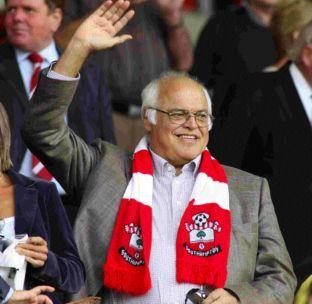-
Posts
58,116 -
Joined
-
Last visited
Everything posted by trousers
-
-
I've got us coming 18th...
-
I see 'Missed Money Penny' is on the side of Brexit... so that's all the thanks her best mate Dave gets for backing her Pompey rescue effort at the taxpayer's expense then... https://www.express.co.uk/news/politics/655066/Portsmouth-City-Council-votes-Brexit-EU-referendum-Penny-Mordaunt-Ukip
-
Take 2....
-
It takes years of hard work and dedication but the rewards make it all worthwhile in the end.
-
http://www.thesportbible.com/articles/premier-league-club-could-have-signed-luke-shaw-for-incredibly-cheap-price-in-2012-220316
-
Adam Blackmore @bigadamsport #saintsfc defender Ryan Bertrand the only absentee from England training today with an unspecified injury
-
Fair enough, but I still maintain the possibility/probability that there would have been a point in time earlier this season that some Leicester fans on the 'FoxesWeb Forum' would have started to suggest that they could win the league and 'Alpine_fox' would be telling them they were "barking". Perhaps somewhere around match 10 (towards the end of October)...? Yours digressionally...
-

Terrorist Attacks - WARNING: CONTAINS DISTRESSING IMAGES
trousers replied to sadoldgit's topic in The Lounge
I think the point being made is that they could have "got what they wanted" a lot sooner than they did if their 'bombing campaign' had been a lot more intelligent. They could have blown up all rail lines into London and all runways (etc) and brought London to a standstill for weeks/months on end, for example. IMO, people with terrorist mindsets prefer protracted campaigns because it feeds their deranged appetite for violence. -

Terrorist Attacks - WARNING: CONTAINS DISTRESSING IMAGES
trousers replied to sadoldgit's topic in The Lounge
Was more of a mixed bag than that... https://en.wikipedia.org/wiki/List_of_terrorist_incidents_in_London -

Terrorist Attacks - WARNING: CONTAINS DISTRESSING IMAGES
trousers replied to sadoldgit's topic in The Lounge
I used to think the same when the IRA were blowing up people in London in the 80s. They could have brought London to a stand-still so easily by attacking the infrastructure rather than the people of London, but instead, despite the tragic loss of life they caused, London pretty much was 'business as usual' throughout that period. As you say, it's probably got something to do with lack of intelligence at the end of the day. -
# Bite klaxon # At what point in the season did Leicester fans stop being 'barking' for thinking they could win the league? (One assumes they were 'barking' to think this up to a certain point in time)
-

Pochettino interview: Spurs are a bigger club than Saints, etc.
trousers replied to Singapore Saint's topic in The Saints
http://www.bbc.co.uk/sport/football/35739244 -
http://www.fai.ie/ireland/news/video-winners-unveiled-for-2016-three-fai-international-awards
-
So, with JRod and Austin likely to be back in contention, we could be looking at one of our strongest match day squads ever IMO... I'd revert to our 'February clean sheet formation' for this one (i.e 3 CBs + 2 wing backs), for example... ------------------------ Forster ------------------------- ------- VvD ------------ Fonte ---------- Bertrand ----- Cedric ------------------------------------------ Targett ------------- Wanyama ----------- Romeu ------------- ------ Pelle -------------- Mane ------------ Long ------ Subs: Stek, Martina/Yoshida, JWP, Clasie/Davis, Tadic, JRod, Austin I wonder if this this will be the first time a regular full international player won't make the Saints match day squad (out of choice rather than injury/suspension)?
-
https://www.youtube.com/watch?v=W13vlE10bzg
-
-
Nah....there's still one more meltdown left in us this season I feel
-
Ha ha ha ha ha!!!!!!!
-
Boom!!!!!!
-
FFS Alpine. We need you to keep criticising the team and management if we're going to score another!


